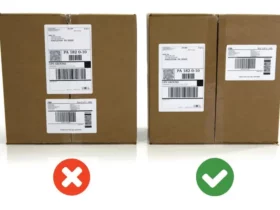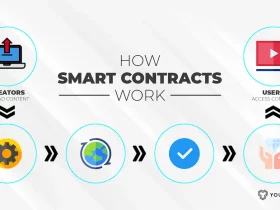Auto leasing is a popular method of acquiring vehicles, especially for individuals and businesses seeking flexibility and affordability. This service involves a gradual payment of the vehicle’s amount by the client, but until the payment is completed, the car legally remains the property of the auto company offering this service.
The leasing industry continues to grow each year. This is evident from the decline in direct ownership in Europe, dropping from 53% to 42% over 8 years. Leasing is advantageous, convenient, and relatively swift. Despite all the benefits and rapid growth of the service, managing car rentals can be a complex task, especially when dealing with dozens or even hundreds of vehicles and clients. In this article, we will discuss the method of proficient and professional car rental management using leasing software.
What is leasing software?
Leasing is gaining momentum, as statistics show. In the UK alone, around 5 million vehicles were leased in 2020, of which only 1.9 million were individual contracts. The rest were leased by companies that are obligated to use specialised programs in their operations.
Leasing software is a system for efficiently managing auto leasing contracts. The program can be tailored to various company needs and perform essential functions:
- Customer management allows for maintaining and storing a user database, monitoring contract expiration for timely renewal or completion.
- Finances: The software enables tracking monthly contributions from all clients, calculating interest rates, and managing the company’s expenses and income.
- Analytics and data monitoring provide insight into the entire business workflow.
- Document workflow allows for creating, modifying, and sending contracts to clients online, signing them electronically.
- Integration of software with other systems for more productive operations.
In 2020, Capgemini Consulting conducted a study, revealing that 72% of clients prefer applying for car leasing online. Hence, having cloud-based software is a significant advantage for auto leasing companies.
Advantages of leasing software
Automotive leasing software is a flexible platform that helps automate the entire workflow. Business owners can configure service provision parameters, payment options, and commission types for each client individually. Managers or administrators no longer need to manually request monthly payments from clients; the program will handle it all, even sending payment reminders, debt notifications, or important updates. Automating each stage of the process reduces the potential for errors that could arise from human factors.
With the program, you can customise contract templates to save time and improve efficiency. No more manually drafting separate contracts for each client; simply select a template, adjust the user’s personal details, sign electronically, and send a copy. This minimises potential risks and optimises the leasing process, significantly improving customer service and business profitability.
The software is a cloud-based solution, with data stored on online servers. This ensures maximum confidentiality and protection of clients’ and companies’ personal information in auto leasing. Business owners can configure roles for each company employee, controlling access to specific information. This maintains data confidentiality and prevents unauthorised access to critical information. Additionally, it allows business owners to remotely and in real-time view all information regarding current transactions and contracts.
Factors to Consider When Choosing Leasing Software
Choosing leasing software requires a serious approach since it affects the efficiency and stability of work processes, risk reduction, and the enhancement of customer service. We have prepared several factors that need to be considered when selecting software.
- Multitasking: To adapt to and handle tasks of any business scale, the program should have a specific set of functions. This includes creating, modifying, and completing leasing contracts, configuring automatic calculations, tracking interest rates, payment schedules, and monitoring financial indicators. It is a plus if the program can integrate with your existing accounting system. This eliminates the need for manual data transfer and increases accuracy.
- User-Friendliness: When choosing software to manage leasing services, the intuitiveness of the interface is equally important. Complex and confusing programs reduce efficiency during use. Therefore, opt for platforms that, due to their simplicity, will help your employees quickly master the software, saving time and resources on training. Simplicity plays a significant role in reducing the number of data input and management errors.
- Scalability is an integral part of business. It is important for software to have the ability to expand and adapt to changing volumes of information. In such cases, cloud-based software becomes an ideal option.
- Customization of Parameters: When a business expands or changes specific work processes, the software needs to be reconfigured. Constantly changing software is not cost-effective. A system that allows businesses to modify or expand settings to adapt to specific requirements is the ideal solution.
- Customer Support: A proficient leasing software developer should provide professional technical support for clients and company employees, always being available to quickly resolve issues related to operation or interface. The same applies to regular software updates, ensuring data security and smooth program operation.
Types of Leasing Software
Today, there is a wide variety of automotive leasing software available. The specific choice depends on the company’s scale and needs. Before settling on one option, it is essential to conduct an analysis and compare all available systems. Here are several types of such software:
Specialized Leasing Platforms
These programs are designed exclusively for managing automotive leasing operations, such as monitoring leased vehicles, contract management, and accounting reporting. By connecting to telematics systems, you can always track the location of leased vehicles and even immobilise the engine if the client fails to meet the contract terms.
CRM Systems (Customer Relationship Management)
These systems offer a specific set of functions designed for managing leasing clients and contracts. CRMs can maintain a customer database, provide information on their transactions and communications. However, such software limits a business’s ability to track financial movements and analyse the company’s current state.
ERP Systems (Enterprise Resource Planning)
Software that helps companies automate essential business processes by integrating modules for managing leasing operations. ERP systems are suitable for companies where leasing is part of a broader activity. Regardless of the developer, all ERP systems have a similar architecture: a platform, modules, and financial control.
Cloud-Based Leasing Platforms
Cloud-based programs enable the management of leasing operations over the internet. They store more data and perform operations quickly. Cloud platforms provide businesses with flexibility, scalability, and accessibility from any device. You pay only for the functions you use, rather than overpaying for an entire package as with local services.
Financial Systems
These are calculators and individual modules for calculating interest rates or monthly payments for leasing contracts. Financial systems allow the management of leasing contracts and payments exclusively, without addressing fleet management or customer relationships.
Custom Solutions
Some companies may be unable or unwilling to use available market software, opting to develop their customised software tailored to their business needs. This approach can be effective but is a lengthy and expensive process.
Conclusion
Many mistakenly believe that improving the efficiency of automotive leasing can only be achieved by enhancing business operations. In reality, specialised software can accomplish this. Such systems automate most tasks, help optimise work processes, reduce errors, and enhance customer loyalty – key factors in overall business efficiency. Choose high-quality software with the necessary set of functions to ensure your company’s success.













